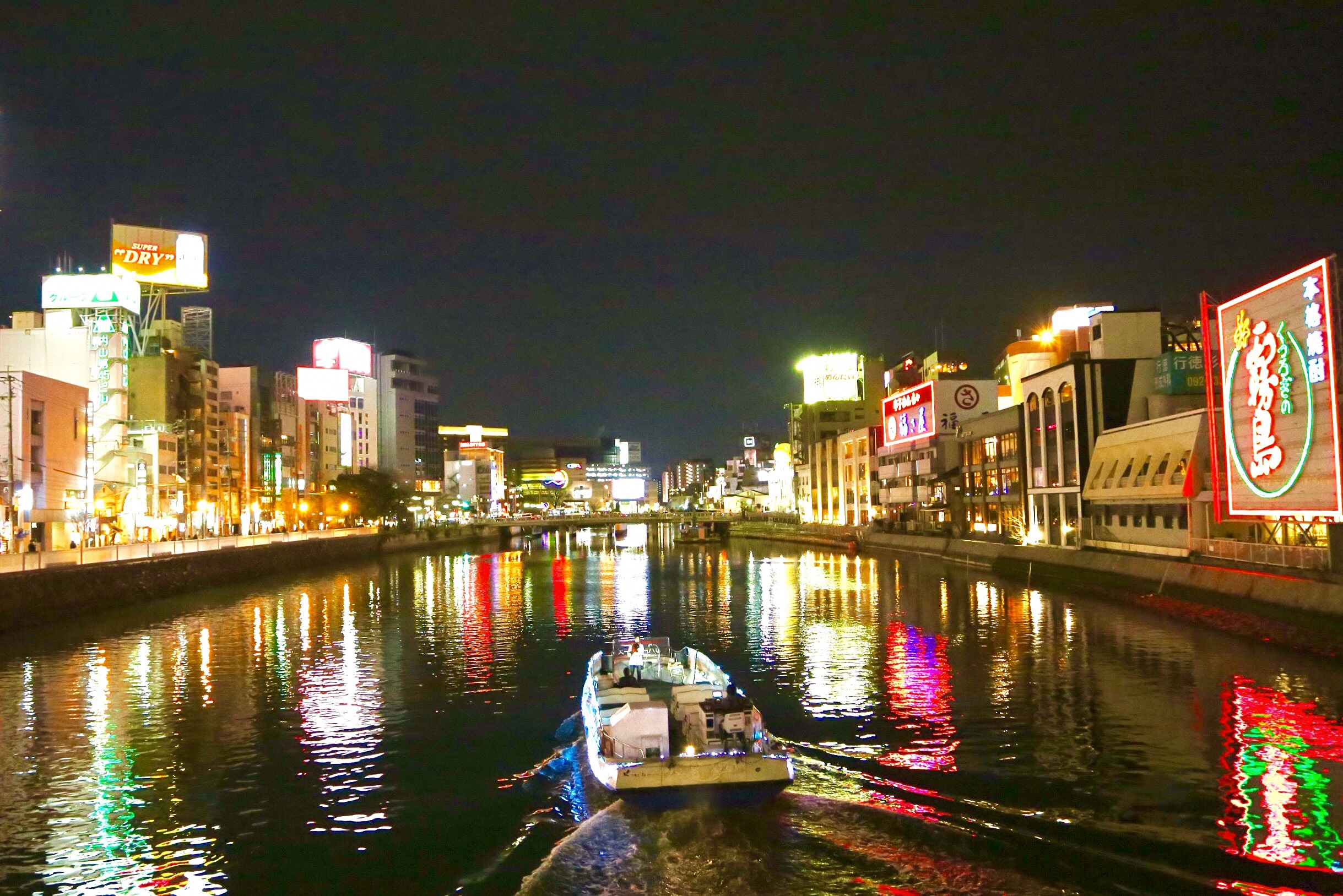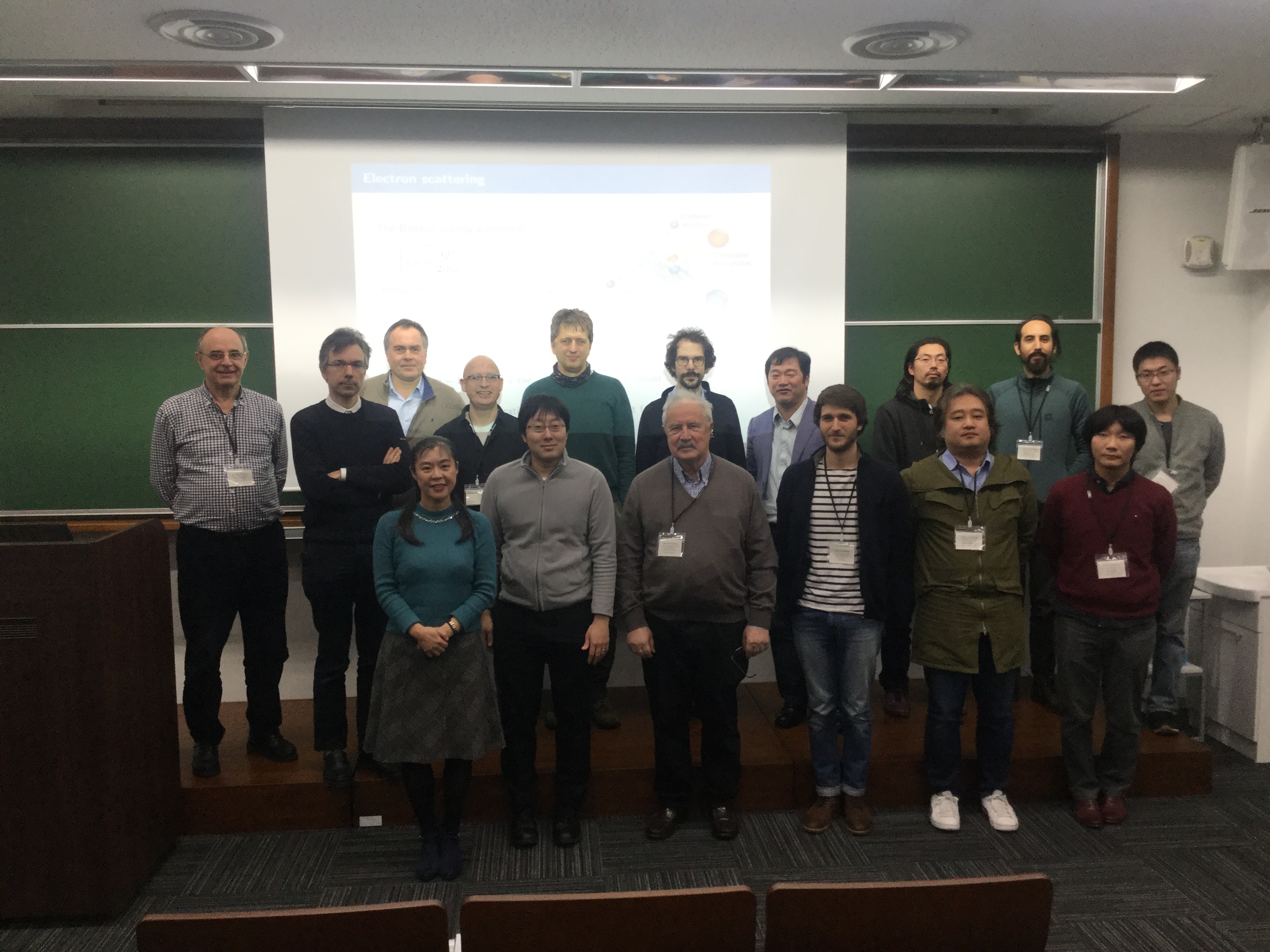2nd workshop ``Clusters in quantum systems: from atoms to nuclei and hadrons"
Date: Jan. 27 - Jan. 31, 2020
Place: Kyushu University (Ito campus), West 1st Bldg. of Institute of Mathematics for Industry (IMI)
Organizers: Emiko Hiyama (RIKEN-Kyushu University), Hajime Togashi (Kyushu University), Shimpei Endo (Tohoku University), Pascal Naidon (RIKEN),
Contact: hiyama  riken.jp (Local Organizer)
riken.jp (Local Organizer)
Registration: Please register from Here (Registration deadline: Nov. 22nd, 2019).
Fee: Registration is free. Banquet on Wednesday evening will cost 3000JPY, to be paid by cash in JPY at the venue.
Scope & Aim: Clusters are aggregates of microscopic objects or particles, formed when they attract each other. While they appear in various forms at various scales, there is growing evidence that some types of clusters governed by quantum mechanics exhibit the same universal features. Prime examples are the Efimov trimers observed in cold atoms, few-nucleons systems following the Phillips line, and neutron-rich "halo" nuclei. There are also ongoing attempts to find exotic hadronic molecules or neutronic molecules by using leading accelerator facilities around the world. How are these few-body clusters different from each other? Can we find the same universal features despite the extreme difference in energy scale between them? This workshop aims to be a platform for researchers working on these clusters in various fields of physics to reach a universal understanding across the different scales of these fields. The 1st workshop was held at
Tohoku Universisty (Aobayama-campus) in Sendai in 2019. This is the 2nd workshop, aiming to reinforce interdisciplinary research collaborations initiated by the 1st workshop. The workshop consists of two kinds of sessions. The first one will be dedicated to presentations by participants, to share their recent research results in different fields. The other will provide free time to stimulate discussions and collaborations among participants.

Program
※ Please note that the conference room changes depending on date as follows:
Jan 27-30: West 1st Bldg. D, 4F, room 414 (IMI conference room). See
Institute of Mathematics for Industry (IMI) webpage HERE for general access information. You can also find for more detailed information about the room
HERE (in japanese).
Jan 31: West 1st Bldg. A, 7F, room A711 (Physics conference room). The building is next to (connected to) the above venue for Jan. 27-30.
Jan. 27th (Mon): West 1st Bldg. D, 4F, room 414 (IMI conference room)
9:00-9:10
Welcome address Emiko Hiyama (Kyushu Univ./RIKEN)
Morning Session (Chair: Emiko Hiyama)
9:10-10:10
"Universality of few-body clusters and their applications to many-body systems" Shimpei Endo (Tohoku Univ.)
10:10-11:10
"A bubble of polarons" Pascal Naidon (RIKEN)
11:10-11:30
Break
11:30-12:30
"Width and Shift of Fano-Feshbach resonances for van der Waals interactions" Ludovic Pricoupenko(Sorbonne University)
12:30-14:00
Lunch time
14:00-
Free Discussion
Jan. 28th (Tue)
Morning Session (Chair: Pascal Naidon)
9:00-10:00
``Few-body quark-dynamics for multiquark states" Jean-Marc Richard (Lyon University)
10:00-11:00
``Neutron-rich boron isotopes at and behind the drip line" Julien Gibelin (Université de Caen Normandie)
11:00-11:30
Break
11:30-12:30
``Search for Hydrogen 7 and its 4 neutron decay at SAMURAI" Cyril Lenain (LPC Caen)
12:30-14:00
Lunch time
14:00-
Free Discussion
Jan. 29th (Wed)
Morning Session (Chair: Hajime Togashi)
9:00-10:00
``Surface localization of dineutron in 11Li" Tomohiro Uesaka (RIKEN)
10:00-11:00
``Advances in solving few-body problem by Faddeev-Yakubovsky equations" Rimantas Lazauskas (IPHC Strasbourg)
11:00-11:30
Break
11:30-12:30
``Short range correlations and universality in nuclear physics and Baryonic Effective Field Theory for Light Hypernuclei" Nir Barnea (Hebrew University)
12:30-14:00
Lunch time
Afternoon Session (Chair: Shimpei Endo)
14:00-15:00
``Symmetry energy effects on nuclear clusters in supernova matter" Hajime Togashi (Kyushu University)
15:00-16:00
``"Study of resonances in nuclei via CDCC analyses" Takuma Matsumoto (Kyushu University)
16:00-17:00
``Fusion and fission dynamics with density functional theory" Kouhei Washiyama (Kyushu University)
18:00-20:00
Workshop dinner at Seikyo (生協) restaurant on campus
Jan. 30th (Thu)
Morning Session (Chair: Jaume Carbonell)
9:00-10:00
``Coulomb breakup of halo nuclei" Takashi Nakamura (Tokyo Insitute of Technology)
10:00-11:00
``A view of the charmed baryon electromagnetic form factors" Kadir Utku Can (University of Adelaide)
11:00-11:30
Break
11:30-12:30
``Size and structure of near-threshold states" Tetsuo Hyodo (Tokyo Metropolitan University)
12:30-14:00
Lunch time
Afternoon Session (Chair: Tesuo Hyodo)
14:00-15:00
``Emergence of nuclear clustering in dipole excitations of 6Li" Wataru Horiuchi (Hokkaido University)
15:00-
Free Discussion
Jan. 31st (Fri):West 1st Bldg. A, 7F, room A711 (Physics conference room)
Morning Session (Chair: Rimantas Lazauskas)
9:00-10:00
``Study on hadron interaction from hadron-hadron correlation in high-energy nuclear collisions" Yuki Kamiya (ITP, Chinese Academy of Sciences)
10:00-11:00
``TBA" Jaume Carbonell (Institut de Physique Nucléaire d'Orsay)
11:00-11:30
Break
11:30-12:30
``Tensor and short-range correlations in light nuclei with antisymmetrized molecular dynamics" Takayuki Myo (Osaka Institute of Technology)
12:30-14:00
Lunch time
14:00-
Free Discussion

Access:
Kyushu University is close to the center of Hakata, the biggest city in Kyushu island. The most convenient airport to get to Kyushu University is Fukuoka Airport (FUK). Kyushu University Ito campus is about 1 hour from the aiport by train and bus (and Hakata city is 10 min from the airport by train). For more details,
please see HERE, the official website of Institute of Mathematics for Industry (IMI), Kyushu University.
 riken.jp (Local Organizer)
riken.jp (Local Organizer)


